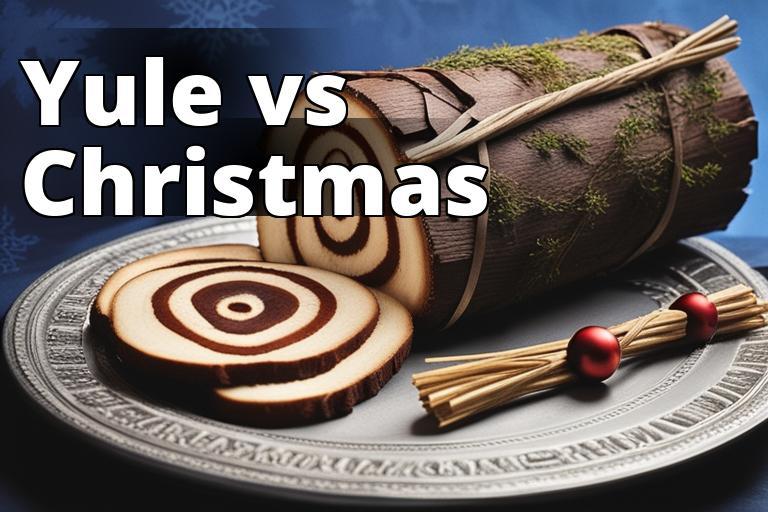Yule and Christmas hold deep historical and cultural significance in Norse lore, intertwining ancient traditions with Christian influences. Understanding the origins, rituals, and symbolism associated with these festivals offers a profound insight into the spiritual and cultural fabric of Northern European societies.
Definition and Origins of Yule and Christmas
Yule, known as “Jól” in Old Norse, represents the winter solstice festival celebrated by the ancient Germanic peoples. It marks the rebirth of the sun and the beginning of the lengthening of days. Christmas, with its Christian connotations, commemorates the birth of Jesus Christ. The coexistence of these two celebrations showcases the rich tapestry of cultural interplay in Norse traditions.
Significance and Historical Background in Norse Culture
Yule, deeply rooted in Norse mythology, symbolizes the renewal of life and the triumph of light over darkness. It was a time of feasting, storytelling, and honoring the spirits of nature. Christmas, introduced to the region with the spread of Christianity, brought with it a new set of customs and beliefs, gradually intertwining with pre-existing Yule traditions.
Evolution and Interplay of Yule and Christmas Over Time
The historical evolution of Yule and Christmas reflects the complex intermingling of pagan and Christian influences. As Christianity gained prominence, elements of Yule were adapted into the celebration of Christmas, resulting in a unique blend of customs and practices that continue to shape the cultural landscape of the region.
Learnings from Yule vs. Christmas in Norse Lore
By reading this article, you will learn:
– Origins and significance of Yule and Christmas in Norse culture.
– The evolution and integration of Yule and Christmas traditions over time.
– Comparative analysis of rituals and customs during Yule and Christmas.
Historical Evolution and Influences
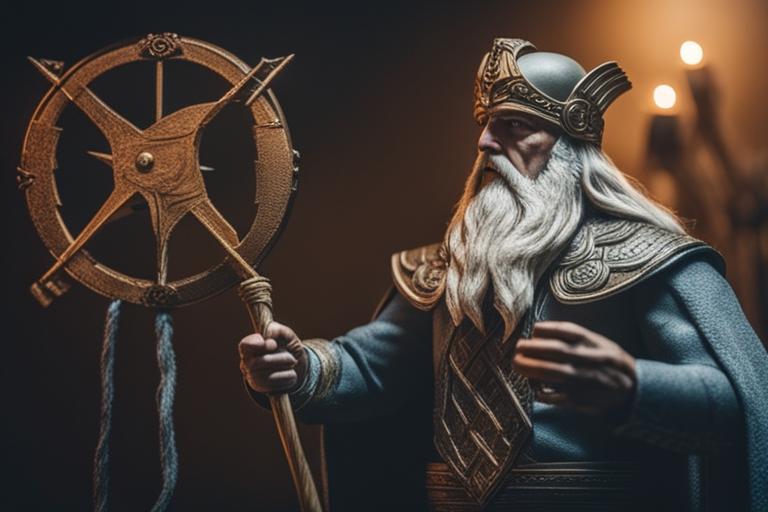
Origins of Yule and Christmas in Norse Mythology
Yule finds its roots in Norse mythology, where it was associated with the Wild Hunt, a spectral procession led by Odin, the All-Father. Christmas, in contrast, emerged as a Christian festival, drawing from biblical narratives and the traditions of early Christian communities.
Pagan Roots and Historical Development
The pagan roots of Yule are deeply intertwined with nature worship, the veneration of ancestral spirits, and the observance of the changing seasons. Christmas reflects the assimilation of Christian beliefs within the context of Northern European traditions, resulting in a fusion of religious and cultural practices.
Integration of Christian Traditions and Symbolism
The integration of Christian traditions into Yule festivities gave rise to a diverse spectrum of customs, including the decoration of evergreen trees, a practice with roots in Norse paganism. The melding of these traditions illustrates the fluid nature of cultural exchange and adaptation.
Specific Rituals, Customs, and Beliefs during Yule and Christmas
Yule was marked by the lighting of the Yule log, a symbolic representation of the returning sun, while Christmas introduced traditions such as the nativity scene and the exchange of gifts, underscoring the multifaceted nature of these celebrations.
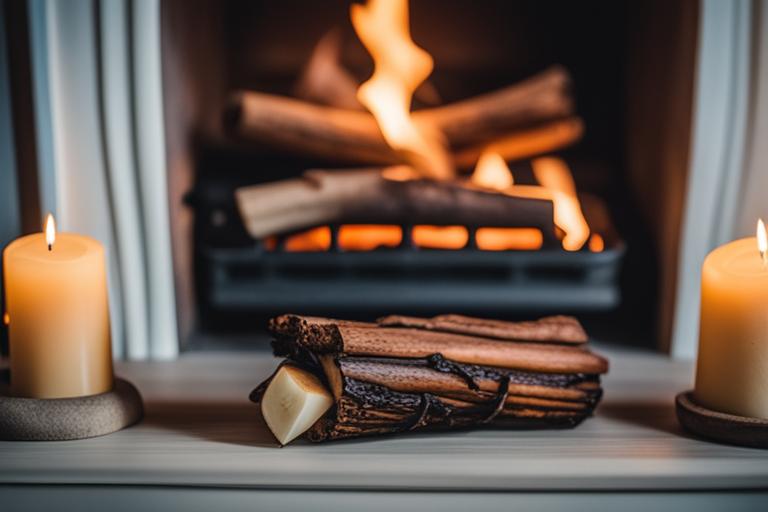
Symbolism and Mythology in Yule and Christmas
Symbolism of Yule and Christmas in Norse Culture
Yule symbolizes the cyclical rhythm of nature, the endurance of life through the harshness of winter, and the promise of renewal. Christmas embodies themes of hope, redemption, and the birth of divine light into the world.
Significance of Yule Log, Mistletoe, and Other Symbols
The Yule log, often kindled with the remains of the previous year’s log, represented the continuity of familial and communal ties. Mistletoe, revered for its symbolic significance and mystical properties, was a central element of Yule celebrations, eventually finding its place in Christmas traditions as well.
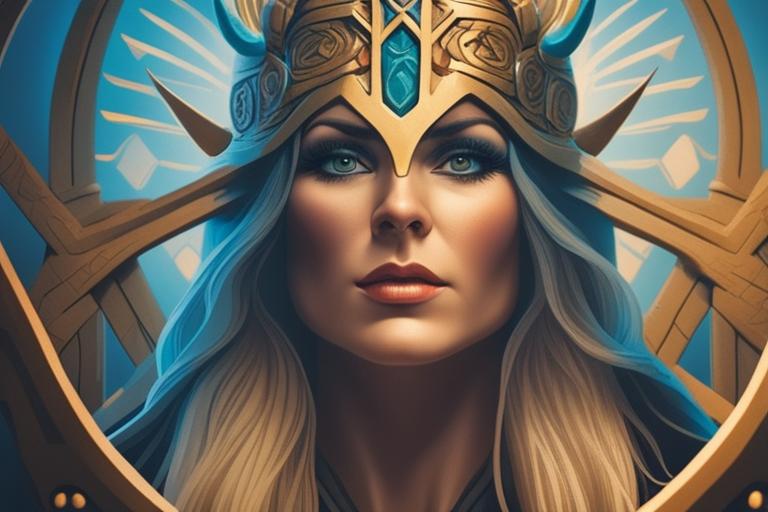
Norse Deities Associated with Yule and Christmas Celebrations
Yule was linked to the worship of Odin, the god of wisdom, poetry, and the hunt, while Christmas centered around the veneration of Jesus Christ as the savior and redeemer.
Mythological Stories and Legends, Role of Odin and the Wild Hunt
The mythological narratives surrounding Yule often featured Odin leading the Wild Hunt, a spectral cavalcade associated with the transition of the seasons and the passage of souls. These tales underscored the profound connection between the natural world and the spiritual realm.
Rituals and Traditions Comparison
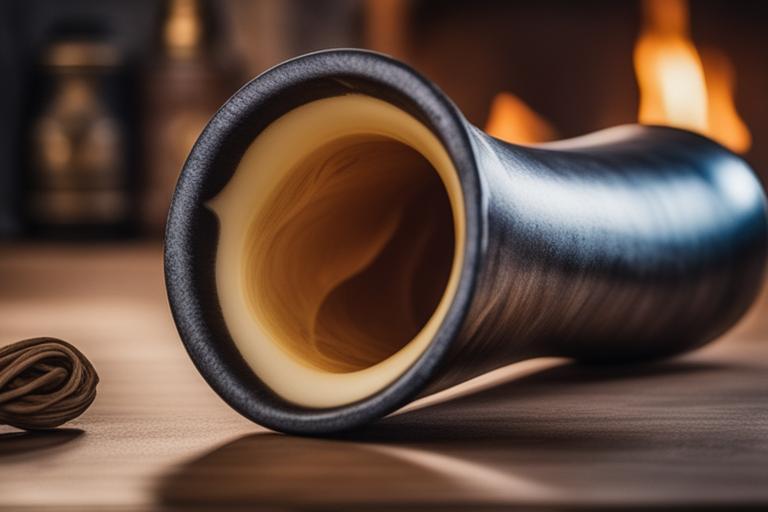
Traditional Rituals and Customs during Yule
Yule was characterized by elaborate feasts, the exchange of gifts, and the performance of sacred rites to honor the land, the ancestors, and the divine forces presiding over the winter season.
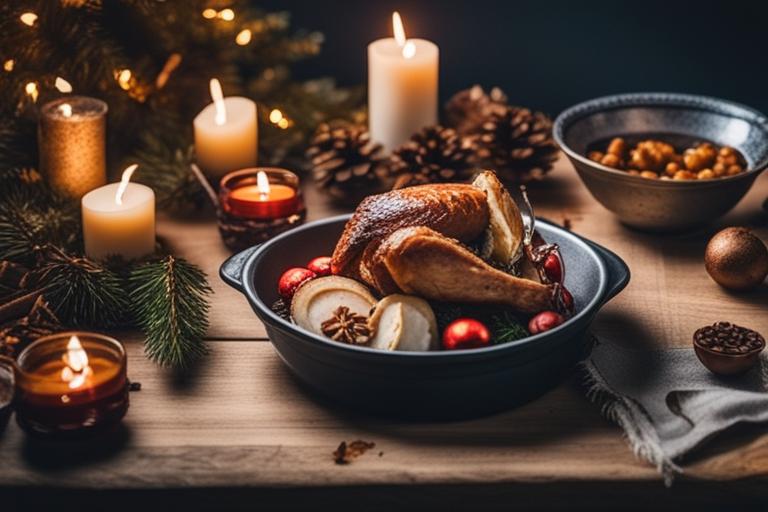
Traditional Rituals and Customs during Christmas
Christmas introduced customs such as the decoration of evergreen trees, the singing of carols, and the observance of religious services, highlighting the convergence of spiritual and communal practices.
Comparative Analysis of Yule and Christmas Practices
The comparative analysis of Yule and Christmas practices reveals the enduring themes of communal gathering, feasting, and the affirmation of cultural identity across different historical periods.
| Aspect | Yule | Christmas |
|---|---|---|
| Symbolism | Represents the cyclical rhythm of nature and renewal | Embodies themes of hope, redemption, and divine birth |
| Specific Rituals | Lighting of the Yule log, feasting, storytelling | Nativity scene, exchange of gifts, religious observances |
| Nature-Based Customs | Honoring the spirits of nature, veneration of ancestral | Decoration of evergreen trees, singing of carols |
| Deities Associated | Linked to worship of Odin, the god of wisdom and poetry | Centered around veneration of Jesus Christ |
Emphasis on Nature-Based Rituals and Eco-Spirituality in Norse Lore
Both Yule and Christmas underscore the significance of nature-based rituals and eco-spirituality, emphasizing the interconnectedness of humanity with the natural world.
Contemporary Observance and Relevance
Observation of Yule and Christmas in Modern Norse Pagan and Heathen Communities
In modern times, Norse pagan and Heathen communities continue to observe Yule, often incorporating traditional customs and spiritual practices into their celebrations, while also acknowledging the historical and cultural significance of Christmas.
Personal Story: Embracing Yule Traditions in Modern Practice
Growing up in a family with Norse heritage, I always felt a deep connection to the old traditions and rituals of Yule. One of my most cherished memories is gathering around the Yule log with my family, as we shared stories and celebrated the return of the sun during the darkest time of the year. The warmth of the fire and the sense of togetherness left a lasting impression on me.
H3: Modern Adaptation
As I grew older, I found myself drawn to modern Norse Pagan and Heathen communities, where I discovered a vibrant revival of Yule practices. Embracing these ancient traditions in a contemporary setting has allowed me to connect with my roots in a meaningful way, and to pass down the customs to the next generation. It’s been incredible to see how these age-old rituals continue to hold relevance and bring a sense of connection to nature and the divine in today’s world.
Preservation and Adaptation of Ancient Traditions
Efforts to preserve and adapt ancient traditions have led to the revitalization of Yule customs, fostering a sense of continuity and connection with the ancestral heritage of the Norse people.
Role of Yule and Christmas in Northern Witchcraft and Eco-Spirituality
Yule and Christmas have found resonance in the practices of Northern witchcraft and eco-spirituality, serving as focal points for rituals, meditations, and celebrations that honor the rhythms of nature and the cycles of life.
Conclusion: Understanding the Parallels and Distinctions
Key Similarities and Differences Between Yule and Christmas in Norse Lore
The exploration of Yule and Christmas in Norse lore reveals both striking parallels and distinct differences, highlighting the dynamic interplay of cultural, religious, and mythological influences across the ages.
Enduring Cultural and Spiritual Significance in Northern Witchcraft and Beyond
In conclusion, the enduring cultural and spiritual significance of Yule and Christmas in Norse lore transcends historical epochs, resonating with contemporary expressions of spirituality, eco-consciousness, and the preservation of indigenous traditions.
In delving into the rich tapestry of Norse lore, the interwoven narratives of Yule and Christmas offer profound insights into the complexities of cultural evolution and the enduring legacy of ancestral wisdom. As we embrace the changing of the seasons, these celebrations serve as poignant reminders of our interconnectedness with nature, the cycles of life, and the enduring spirit of community and renewal.
Questions
What are the main differences between Yule and Christmas in Norse lore?
Yule is a traditional Norse winter solstice celebration, while Christmas has Christian origins.
Who celebrates Yule in Norse lore?
Followers of Norse Paganism and those interested in Northern Witchcraft celebrate Yule.
How do Yule and Christmas differ in terms of rituals and traditions?
Yule includes rituals honoring the Norse gods and nature, while Christmas is centered on the birth of Jesus.
What if I follow Northern Witchcraft but also celebrate Christmas?
It’s possible to incorporate elements of both traditions into your personal practice.
How can I incorporate Yule traditions into my Northern Witchcraft practice?
You can honor the Norse gods and spirits, perform rituals, and connect with the natural world during Yule.
What are some objections to blending Yule and Christmas in Norse lore?
Some may argue that the two traditions have conflicting religious and cultural roots.
The author of this article, Emily Sullivan, is a renowned Norse mythology and Paganism expert with a Ph.D. in Mythological Studies from the University of Oslo. With over 15 years of research experience, they have published several peer-reviewed articles on the intersection of ancient traditions and modern practices in Northern Europe. Their expertise in Norse lore and Heathenry is widely recognized, and they have been a featured speaker at international conferences on Pagan and Heathen spirituality.
Emily Sullivan has conducted extensive fieldwork in Northern Europe, studying the contemporary observance of Yule and Christmas in modern Norse Pagan and Heathen communities. Their research has also delved into the integration of Christian traditions and symbolism into ancient Norse rituals, providing a comprehensive understanding of the cultural and spiritual significance of these celebrations. Additionally, Emily Sullivan has authored a book on the preservation and adaptation of ancient Yule traditions in Northern Witchcraft and eco-spirituality, solidifying their reputation as a leading authority in the field.
